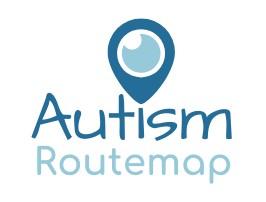The secret to making a difficult conversation easy

A few years ago I tried a low carb diet – you know the kind that sucks all the fun out of a burger? Is it even called a burger if there is no bun? Let’s face it, a true burger is the whole deal – bun on the bottom, filling in the middle and bun on the top. A sandwich of sorts.
Speaking of sandwiches reminds me of the "feedback sandwich". It’s an illustration I use with clients when talking about difficult conversations. Those conversations that need to happen but all too often, go horribly wrong.
Being around people in everyday life inevitably means that there will be problems from time to time. Perhaps there is an issue with sharing household chores or the less than stellar piece of work from a colleague. Maybe your child is refusing to do their homework or a friend has betrayed your trust. Small or big, these things typically get resolved (or not) through discussion.
Because it's challenging, we may get a bad case of wishful thinking and put it off hoping for some miraculous change. But by avoiding the necessary conversation, we carry around a huge ball of stress and run the risk of exploding when we’re having a bad day and self-control is in short supply.
Perhaps one of the reasons we put these conversations off is that we have first-hand experience of things going awry. Past conversations of this nature may not have turned out well. And on top of that, certain people are more challenging to talk to. We may be dealing with someone who is easily offended or someone who is “never” wrong.
If you are socially intuitive, you may adapt your communication as a way of managing the situation. In an effort to avoid the other person getting upset or angry, you use words that minimise the odds of that happening. The challenge with this approach is that you dilute the content and reduce the likelihood of actually getting your message across.
If you operate according to the principles of truth, logic and transparency (as is the case for many autistic people), you may state the facts without considering the emotional impact. This can easily lead to the other person exploding because their feelings are hurt. Or, they may internalise their pain and say nothing but feel resentful and detached from the relationship.
The challenge for autistic people is that they are often not expecting the negative reaction (seen or unseen) and as such, the aftermath can be extremely confusing and debilitating.
One way of managing these difficult conversations is to use the principle of the “feedback sandwich”. Effectively, this means starting with something positive (first piece of bread), delivering the actual content (filling) and finishing with something else that is positive (second piece of bread).
What we often have in practise is either, filling without any bread (factual, honest delivery) or bread and filling mixed together (diluted content). The first style does not take into account the emotional impact and the second style places too much emphasis on the emotional impact. Neither make for a very good sandwich! Or a conversation that hits the mark.
So when using the feedback sandwich, you might start with something like, “I like the way you …”, “You did a great job on …” or “I really appreciate your friendship”. These comments create a foundation of value and respect. On this foundation you can then deliver the content without needing to dilute it. And finally, you finish the conversation with something positive like, “I appreciate you listening to me”, “Thank you for being so understanding” or “Keep going, you’re doing a great job”.
So next time you find yourself wondering how to confront an issue with someone, remember the power of the sandwich.
To difficult conversations made easy!
Linda Philips
MSc. Human Communication
Autism Routemap supports autistic and neurodivergent people with coaching and training to improve communication, people skills and emotional well-being. Interested in knowing how we can help?
Contact [email protected] or book a free Turning Point call here.

